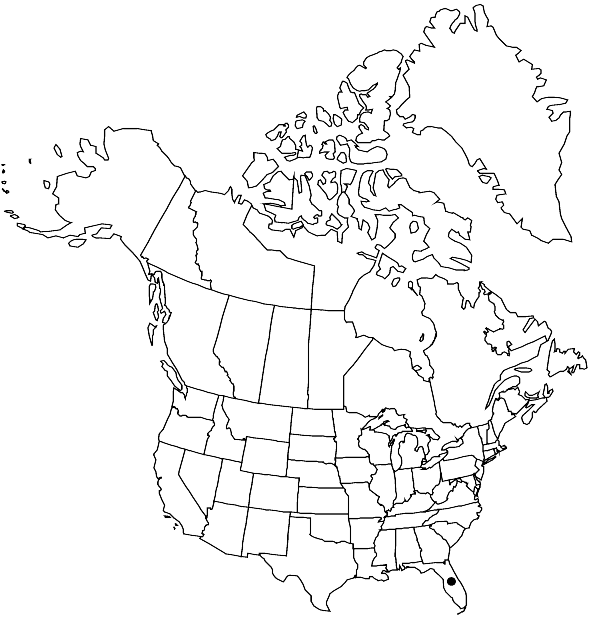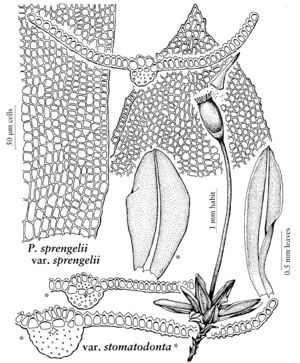Difference between revisions of "Plaubelia sprengelii var. sprengelii"
Treatment appears in FNA Volume 27. Treatment on page 583.
FNA>Volume Importer |
FNA>Volume Importer |
||
| Line 43: | Line 43: | ||
|publication year= | |publication year= | ||
|special status= | |special status= | ||
| − | |source xml=https://jpend@bitbucket.org/aafc-mbb/fna-data-curation.git/src/ | + | |source xml=https://jpend@bitbucket.org/aafc-mbb/fna-data-curation.git/src/f6b125a955440c0872999024f038d74684f65921/coarse_grained_fna_xml/V27/V27_836.xml |
|subfamily=Pottiaceae subfam. Barbuloideae | |subfamily=Pottiaceae subfam. Barbuloideae | ||
|genus=Plaubelia | |genus=Plaubelia | ||
Revision as of 19:41, 24 September 2019
Leaves apiculate; costa percurrent to excurrent; adaxial distal laminal cells mammillose, smooth on both surfaces.
Phenology: Capsules mature winter (late Dec, Feb) to spring.
Habitat: Shaded or exposed moist limestone, quarries, brick mortar, stream banks
Elevation: low elevations
Distribution

Fla., Mexico, West Indies, Central America, South America (Brazil, Venezuela).
Discussion
The citation for Georgia by H. A. Crum and L. E. Anderson (1981) may have been based on a specimen here redetermined as Hyophila involuta (Anderson & Crum 13658, CANM, DUKE).
Selected References
None.
Lower Taxa
None.
